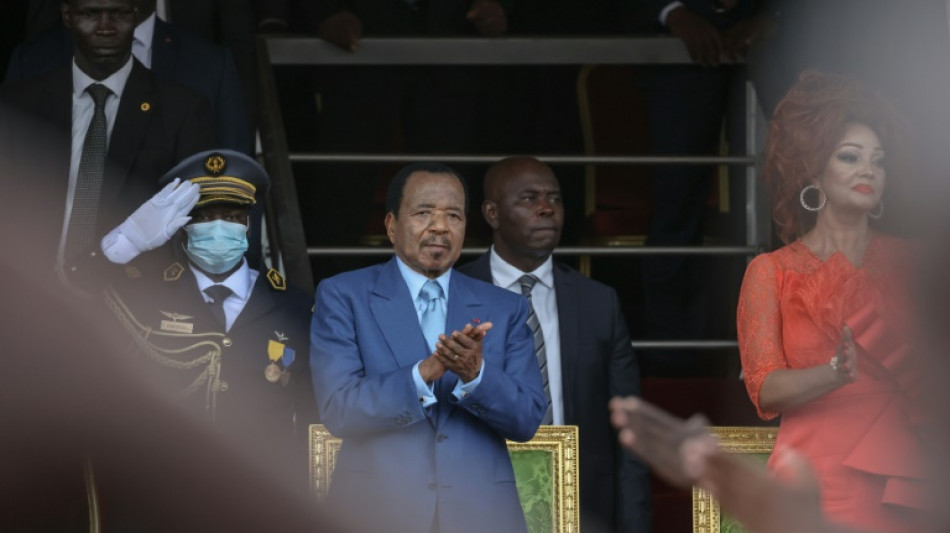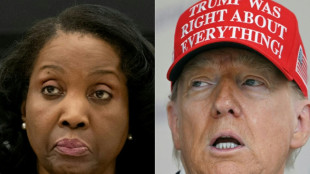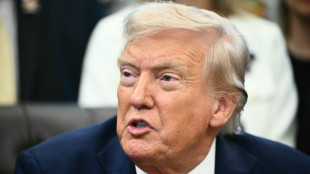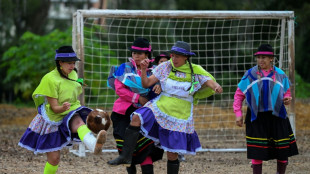
| RBGPF | 0% | 75.55 | $ | |
| CMSC | 0.21% | 23.8 | $ | |
| BCC | -1.38% | 89.98 | $ | |
| NGG | -1.31% | 70.49 | $ | |
| AZN | -1.64% | 79.66 | $ | |
| SCS | -0.67% | 16.39 | $ | |
| RIO | -0.58% | 62.33 | $ | |
| RELX | -1.36% | 47.79 | $ | |
| GSK | -1.39% | 39.64 | $ | |
| BTI | -1.23% | 57.8 | $ | |
| JRI | -0.15% | 13.43 | $ | |
| CMSD | 0.29% | 24.02 | $ | |
| RYCEF | -0.78% | 14.18 | $ | |
| BP | 0.66% | 34.97 | $ | |
| VOD | -0.42% | 11.87 | $ | |
| BCE | -1.07% | 25.22 | $ |
Young Cameroonians face prospect of new bid by 92-year-old leader

Young Cameroonian voters hoping for change in this year's elections still face the possibility that 92-year-old President Paul Biya could announce a bid to extend his more than four decades in power.
Biya, who took the reins in 1982, has remained tight-lipped on whether he plans to stand again in October.
But with just a month to go before candidates have to officially register, some of the party faithful have been calling for him to do so.
Younger voters who have never known another leader in their lifetimes are sceptical about another mandate for the man who is already the world's oldest head of state.
"It would be one candidacy too many," said Ange Ngandjo, 35, a banking consultant.
"He's given what he could. Our generation, trained and competent, also wants to build this country."
Tweaking a motorbike engine at his workshop in Mokolo, a district of the capital Yaounde, 29-year-old Ibrahim Baba echoed the sentiment.
"A new term for Paul Biya? I don't think so," he said.
Law student Celestine Mbida, 24, who attends the University of Yaounde II, will be voting for the first time.
She stopped short of openly criticising the outgoing president but said: "This election represents a lot... It's the future of the country that is at stake. I want to participate by giving my vote."
- Ruling party divided -
After highly contested elections in 2018, Biya tightened his grip on power, cracking down on dissenting opinions with arrests and prison terms, rights activists say.
But even within his Cameroon People's Democratic Movement (RDPC), of which he is national party president, support is no longer unanimous.
While some members have called for continuity, others complain that the party has not held a congress to choose its candidate since 2011.
Among them is Leon Theiller Onana, a municipal RDPC councillor for Monatele, a town north of Yaounde. He has lodged a legal complaint to contest the "legality and legitimacy" of his party's ruling bodies.
Supporters of the president have sought to win over the younger generation.
A gathering under the banner "100,000 youth united behind Paul Biya in 2025" recently took place in the town of Maroua, a presidential stronghold in the poverty-hit Far North.
Organisers said the aim was to unite around Biya for "a resounding victory" in the forthcoming vote.
"He deserves our support," said Mohamadou Atikou Kalda, coordinator of a regional youth platform.
Biya was behind several projects that supported development in the north, he added. "To continue on this path is essential."
- A 'charade' -
But not everyone is happy; some critics even accuse the organisers of stage-managing the event.
"They rounded up children to make people believe he still has support in the Far North," one young man said in a video widely shared on social media.
"It's false, it's a charade," he added.
Political analyst Aristide Mono of Yaounde II University said whoever wins the presidency faced high expectations from voters.
"Whether you're young, old, a woman or a man, the concerns are the same," he told AFP. "Persistent insecurity in the Far North, anglophone (separatist) crisis, high unemployment, cost of living, tribalism."
"Young people, like other social groups, are asking themselves about the post-Biya era -- because one day or another, in one way or another, Paul Biya will no longer be in power," he added.
"So we have to anticipate and organise the succession to avoid succession crises that have often led to civil wars."
- 'Lack of succession plan' -
The uncertainty weighs on Cameroon's international standing.
In a November report, Fitch Ratings confirmed the country's "B negative" rating, putting the chance Biya might run for another term in its "Political Risks" list.
"The lack of a succession plan and political divisions exacerbate the risk of a disorderly transition of power," it noted.
At 71, Maurice Kamto, leader of the main opposition Movement for the Renaissance of Cameroon (MRC), is hardly the youth candidate, even if he has tried to appeal to them.
"If our country is to survive and achieve a certain rank tomorrow, the youth must be prepared," he said.
In a country where 60 percent of the population is aged under 25 and youth unemployment is close to 74 percent, the vote will likely be decisive for a generation looking for opportunities and change.
W.Fortin--SMC


 London
London

 Manchester
Manchester
 Glasgow
Glasgow
 Dublin
Dublin
 Belfast
Belfast
 Washington
Washington
 Denver
Denver
 Atlanta
Atlanta
 Dallas
Dallas
 Houston Texas
Houston Texas
 New Orleans
New Orleans
 El Paso
El Paso
 Phoenix
Phoenix
 Los Angeles
Los Angeles



